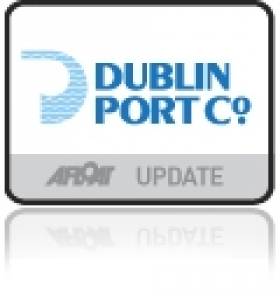Displaying items by tag: Irish Tourism Industry Confederation
Varadkar to Open Dublin Port Conference
Dr. Leo Varadkar, T.D., Minister for Transport, Tourism and Sport will open a major conference on the future development of Dublin Port at 9 am tomorrow at The Gibson Hotel, Dublin (beside the Point Village). Among the issues to be addressed at the conference will include: economic; infrastructure; planning; transport; tourism; and environmental considerations.
Speakers and panellists on the day will include: Danny McCoy, Director General, IBEC; Jim Power, Economist; Dr. Don Thornhill, Chairman, National Competitiveness Council; Gina Quin, CEO, Dublin Chamber; Michael Stubbs; Dublin City Assistant Manager; John Whelan, CEO, Irish Exporters Association; Eamonn McKeon, CEO, Irish Tourism Industry Confederation; Peter Nash, Tourism Ireland; Nigel O'Neill, Head of Strategic Planning, NRA; Stephen Ahearne, General Manager – Freight, Irish Rail; Tom Wilson of the Freight Transport Association; Marian Wilson; Head of Transport Planning, National Transport Authority; Patrick Verhoeven, Secretary General, European Sea Ports Organisation; Brendan McDonough, Manager of Strategic Planning and EU, IDA Ireland; Eamonn O'Reilly, CEO, Dublin Port Company; and Lucy McCaffrey, Chairperson, Dublin Port Company.
The conference is part of Dublin Port Company's consultation on the future development of Dublin Port, which will need to handle 60 million tonnes - double today's throughput – by 2040. The key question to be addressed is how Dublin Port Company can achieve this taking into consideration the Port's role and responsibilities across trade, tourism, transport and the natural and built environments.
Dublin Port Company is seeking submissions on the development of a Masterplan by 31st May, 2011.
























































